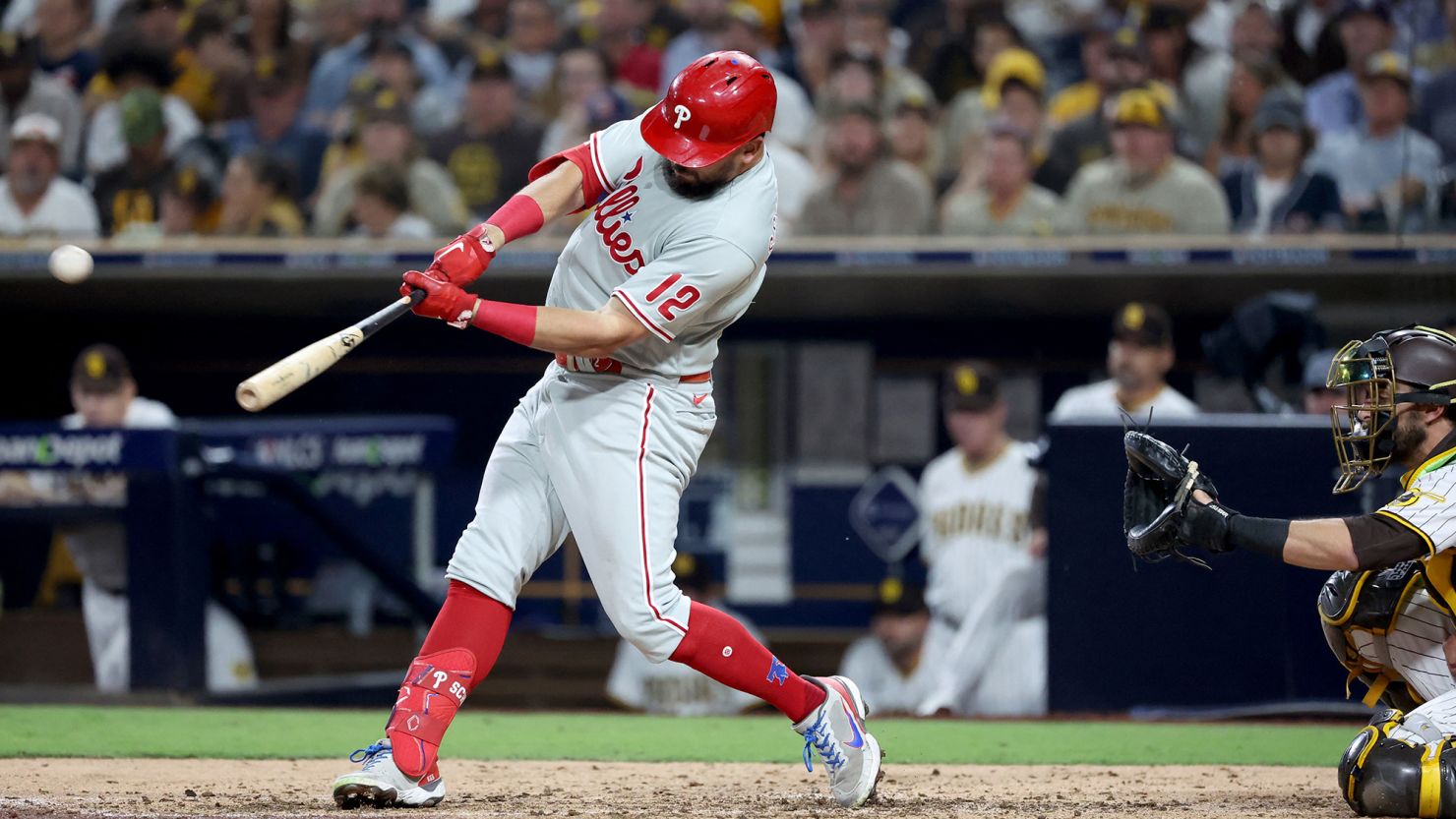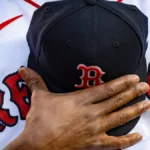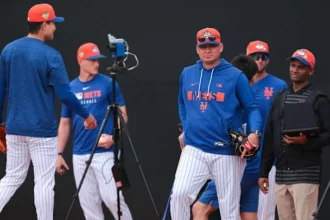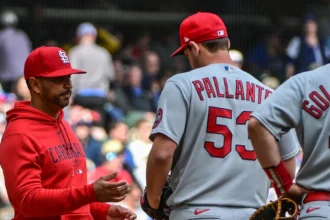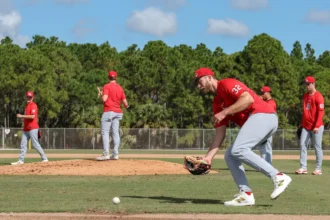The Philadelphia Phillies once again captured the NL East crown during the 2025 season, marking another strong regular-season campaign that showcased the team’s consistency and dominance within the division. However, their postseason fate was all too familiar. Despite earning a first-round bye into the National League Division Series, their October run was once again cut short. This time, the reigning World Series champion Los Angeles Dodgers proved to be their undoing, eliminating the Phillies in a tightly contested series. It was the second consecutive year that Philadelphia’s playoff hopes were dashed by a Wild Card team—a painful reminder that regular-season success doesn’t always translate to postseason glory.
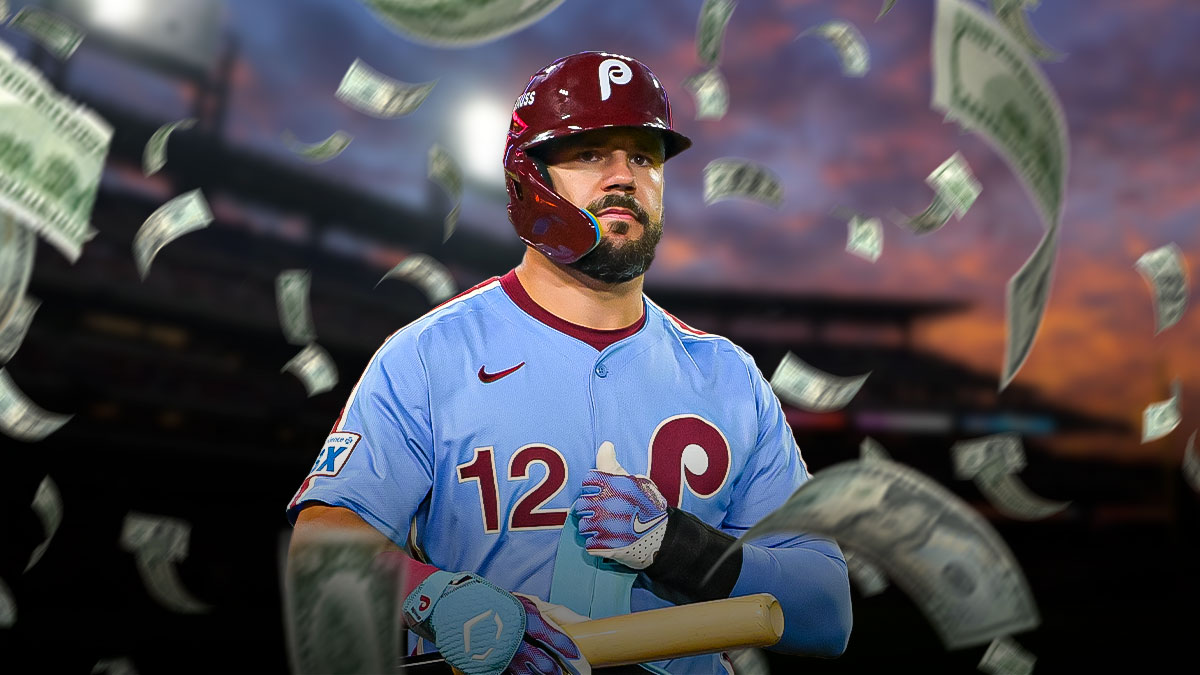
The loss leaves the Phillies facing another crucial offseason, one that could define the next phase of their championship pursuit. While there are several decisions to be made regarding roster construction and future planning, one move stands out as absolutely essential: bringing back Kyle Schwarber. The veteran slugger is set to enter free agency, and his value to the team cannot be overstated.
Ever since signing with the Phillies before the 2022 season, Schwarber has been a fixture in their lineup and one of the most consistent power hitters in baseball. He’s not just a middle-of-the-order presence — he’s been the heartbeat of Philadelphia’s offensive identity. In 2025, at the age of 32, Schwarber delivered what was arguably the best season of his career. He crushed 56 home runs and drove in 132 runs, putting up numbers that would make any team salivate. His ability to deliver in clutch moments and ignite the offense made him indispensable to the Phillies’ success.

One key reason behind Schwarber’s resurgence has been the National League’s adoption of the designated hitter rule. No longer forced to patrol left field — where his defensive shortcomings often overshadowed his offensive brilliance — Schwarber has been free to focus on what he does best: hitting baseballs hard and far. The DH rule has allowed him to fully embrace his offensive role, turning him into one of the most feared power threats in the game.
That said, with free agency looming, Schwarber is poised to be one of the most sought-after hitters on the market. Teams hungry for power, leadership, and postseason experience will surely line up to make their pitch. Yet, Schwarber has made no secret of his desire to remain in Philadelphia. He’s repeatedly expressed his love for the city, the fans, and the clubhouse culture that manager Rob Thomson has fostered. His chemistry with Bryce Harper and the rest of the core has helped define this Phillies era — one built around camaraderie and confidence.
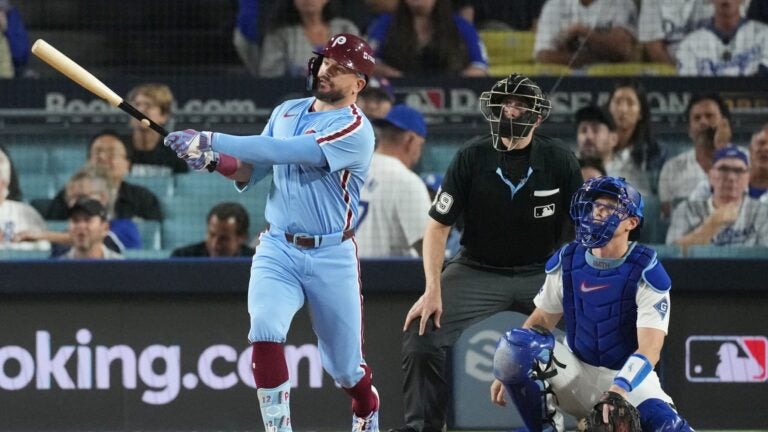
Still, sentiment alone won’t seal the deal. Schwarber knows this might be his last chance at a major payday. At 32, he’s entering the final stretch of his prime, and this free-agent opportunity likely represents his final shot at a long-term, big-money contract. From a timing standpoint, he couldn’t have picked a better moment to hit the market. After two straight monster seasons, his value is at an all-time high. For the Phillies, that means if they want to retain his services, they’ll have to open the checkbook — and do so aggressively.
However, signing Schwarber to a massive long-term deal doesn’t come without risks. His age is the most obvious concern. Power hitters in their mid-30s often see sharp declines in bat speed and plate discipline, and Schwarber’s stocky build doesn’t inspire confidence that he’ll age as gracefully as some of his leaner counterparts. A steep drop-off in production could turn a lucrative deal into an albatross that clogs payroll flexibility in future seasons.

There’s also the statistical context to consider. Over the past two seasons, Schwarber has accumulated 9.2 fWAR — a level of production that far exceeds what he’d achieved earlier in his career. In his previous six seasons combined, he had just 8.6 fWAR. Those numbers raise an important question: are these past two years the new normal, or a late-career peak that’s bound to regress? Betting on the former is risky business, and teams that overpay for outlier seasons often find themselves regretting it later.
It’s unlikely that Schwarber can consistently replicate a 56-homer, 130-RBI pace as he advances deeper into his 30s. Yet, the free-agent market has never been shy about rewarding raw power. Teams routinely pay a premium for sluggers capable of altering games with one swing, and Schwarber fits that mold perfectly. His ability to draw walks, work counts, and punish mistakes gives him value even when he’s not hitting .300.
For the Phillies, the best path forward is finding a way to minimize the financial risk while keeping Schwarber in the fold. The ideal approach would be offering a shorter-term contract with a higher average annual value (AAV), rather than tying themselves to a long deal that could age poorly. A four-year contract worth around $160 million strikes a balance between rewarding Schwarber for his elite production and maintaining roster flexibility for the future.
This kind of deal — roughly $40 million per year — would reflect Schwarber’s current market value while avoiding the pitfalls of a six- or seven-year commitment. It’s aggressive but pragmatic, ensuring the Phillies retain one of the league’s premier power bats during what should still be his productive window.
Beyond the numbers, Schwarber’s impact on the team’s identity can’t be overstated. He’s one of the emotional leaders of the clubhouse — a player whose energy, toughness, and playoff experience have set the tone for the franchise. Teammates often credit him for keeping spirits high during slumps and for setting a professional standard that resonates throughout the roster. His presence in the lineup forces opposing pitchers to navigate carefully, providing protection for hitters like Harper, Trea Turner, and J.T. Realmuto.

Statistically speaking, Schwarber’s 2025 campaign was elite by every measure. According to wRC+, he ranked as the sixth-best hitter in all of Major League Baseball. He was also one of the few true iron men left in the sport, playing all 162 games — a rarity in today’s era of load management and cautious scheduling. It’s not an exaggeration to say that without Schwarber’s consistency, the Phillies might not have even won the division, let alone reached the postseason.
Philadelphia’s lineup, though still potent, has shown signs of needing reinforcement. Only two players — Schwarber and Harper — hit more than 20 home runs last season. The Phillies’ offense has often lived and died by the long ball, and Schwarber’s departure would leave a massive void in that department. Even if power isn’t everything in today’s analytically driven game, there’s no denying that Schwarber’s ability to change games with one swing remains one of the team’s greatest assets.
The market will likely reward Schwarber handsomely for his record-breaking season, and rival teams won’t hesitate to test Philadelphia’s resolve. A deal worth up to $160 million seems not only plausible but probable, especially considering the scarcity of elite sluggers available this winter. The Phillies cannot afford to be outbid. Losing Schwarber would create both a performance gap and a leadership void that money alone couldn’t easily replace.

That’s why the Phillies should approach negotiations with both urgency and respect. Schwarber has more than earned a big payday, but the team must also protect itself against the inevitable aging curve. A shorter-term, high-value deal accomplishes both goals — rewarding a franchise cornerstone while keeping the door open for flexibility down the road.
If Schwarber continues to produce at an elite level through 2029, the Phillies could always revisit another extension at that point. Given the mutual respect between Schwarber and the organization, such an arrangement could easily be structured with the understanding that Philadelphia will take care of him if he continues to perform.
In the end, keeping Schwarber in red pinstripes isn’t just about maintaining power production — it’s about preserving the team’s identity and competitive edge. His combination of leadership, reliability, and raw power is rare in today’s game. He embodies the “Philly toughness” that fans adore and teammates rally around.
A four-year, $160 million deal makes perfect sense. It rewards one of baseball’s premier power hitters for his historic production, while allowing the Phillies to maintain a competitive and financially responsible roster. It’s the type of commitment that signals to the rest of the league — and to their fans — that Philadelphia is serious about finally getting over the postseason hump and bringing a World Series title back to Citizens Bank Park.
The Phillies’ championship window remains wide open, but keeping it that way requires bold and decisive action. Re-signing Kyle Schwarber isn’t just the right move — it’s the only move.
MORE ON MLB NEWS
